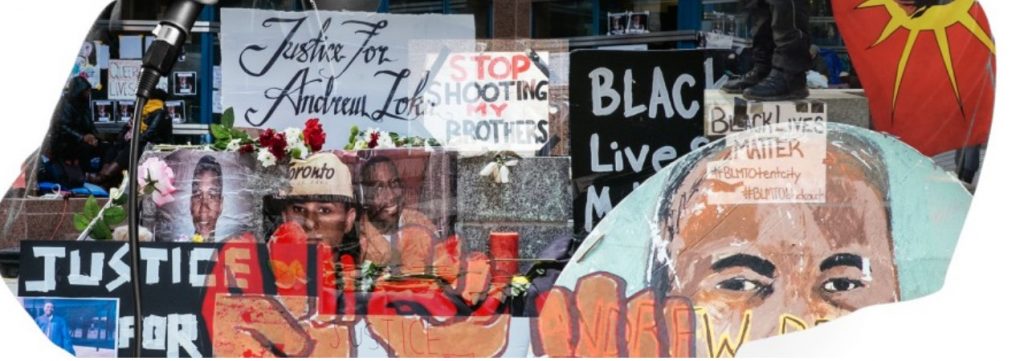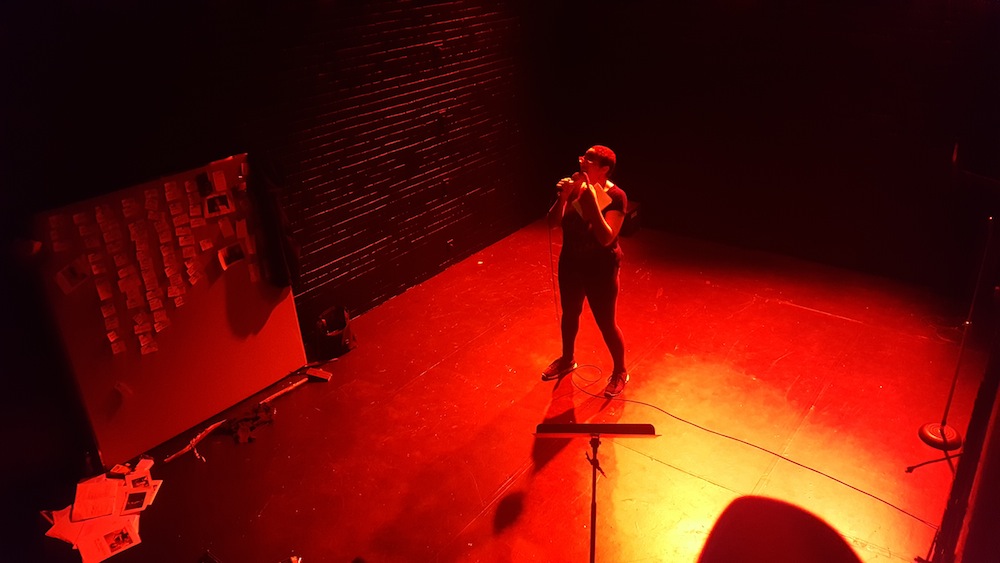
If a chunk of this continent breaks off and sinks, and the survivors seek refuge in Atlantis, it would be understood that the statement “Humans Need Air” addresses itself to the knowledge, awareness, and consequent actions of Atlanteans. Because, of course, we humans already know that we need air. Just as we know that our survival depends on persuading the Atlanteans to facilitate our access to air.
Here’s something you already know, but is nonetheless worth consideration:
If you are not Black, then Black Lives Matter is way more about you than it is about me.
Because I already knew that.
Contributors to this issue CdnTimes:BLACK LIVES MATTER have been asked to consider how – or even if – the changing lens of our broader culture affects their artistic practice. Given the geographic, cultural, and aesthetic diversity of writers, the consistency of the concern over the threat of law enforcement is significant – and something that uninitiated Canadians may dismiss as reflective of a US reality.
As Canadians, our Black liberation movements have been optically subsumed to better disseminated US equivalents. This is unsurprising in a culture of courtesy that has spent a decade feigning shamed surprise at residential schools ‘revelations’.
Nonetheless, with the amplification of the experiences of people of colour in Canada, something is shifting – whether it is circumstances, awareness or merely vocabulary is not entirely clear. The Black Lives Matter conversation is variously centred on:
- whether we can agree that Black Lives Matter
- whether it is necessary to say that Black Lives Matter
- whether there is meaning in the reluctance to say Black Lives Matter
- whether anything is changed by saying Black Lives Matter
We who work in the ‘saying’ professions must believe that there is value in the act of saying, and risk. We must know that there is meaning in the act of remaining silent, and intent.
Repetition makes reality.
Repetition makes reality.
Repetition makes reality.

The historically oppressed social standing of diasporic Africans has gone from an assumptive backdrop underlying Black stories to an opaque overlay, occluding the diversity of experiences and impulses Black artists feel compelled to relate.
While these superimpositions apply to the way work is received by audiences and critics, they are not accidental. Rather, they are actively employed by directors in the construction of performances. Consider how long the symbolic resonance of Black bodies onstage has been exploited to indicate low status; consider how recently we have seen the meaning of Black bodies evolve into something symbolic of discomfort, complication, confrontation; and how in our time we are watching Black bodies used increasingly as a signifier of resistance.
The general population is being rapidly equipped with progressive vocabularies, and the words change meaning as they occupy new mouths (remember when “fo’ shizzle” wasn’t a white parody of Blackness?). Concurrently, the deeper discourse has evolved to be rife with dog whistle rhetoric and hair trigger analysis, compelling creators of colour to organically respond by asserting our own definitions. There is resistance, reclamation, and a little mud-in-yer-eye from works that exercise their entitlement to self-referential freedom (notably, saga collectif’s Black Boys, Darren Anthony’s Secrets of a Black Boy and Shakespeare’s Nigga by Joseph Jomo Pierre). There would be equal honour in a Black artist sticking with the development of a seemingly apolitical musical about her doll collection, despite the newly politicized lens turned on her in this moment – thus affirming our rights as individuals to have varied experiences of Blackness which are not necessarily aligned.
Our onstage and onscreen representations are particularly critical in light of the number of people for whom representation replaces engagement.
For audiences who watch us without wanting to know us.
Collaborators who stage our bodies but not our communities.
Producers who include us in photos and final reports, but not in decision-making.
The narrative is being rewritten daily by our every errant choice. This is what makes us all a part of this movement whether we choose to engage in it actively, to impact it implicitly, or to leave our silence open to interpretation.
The devaluing of Black lives by Western ‘civilization’ has been so systemic, symbolic, and successful, that it is only when we can say, uncontested, that BLACK LIVES MATTER that we will know that we live in a culture where all lives matter.









